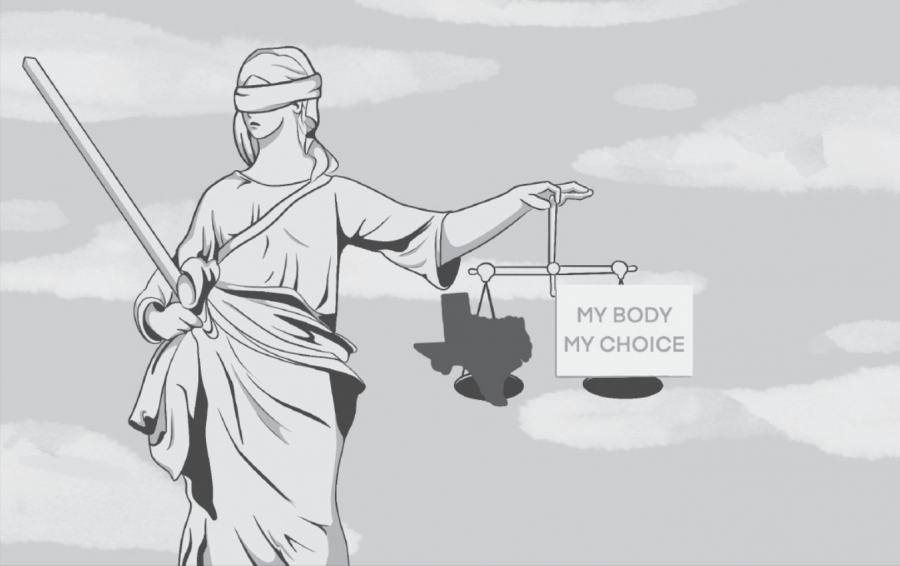Restore women’s right to choose
October 14, 2021
Six weeks ago, a text message from a classmate broke the news to me: Texas legislators enacted a new law banning most abortions after six weeks of pregnancy. More texts and calls lit up my phone screen, prompting me to research the law for myself. The more I learned, the more I understood its harm. So many women could be put at medical risk simply because they didn’t know they were pregnant at six weeks, and still others’ lives might be threatened by a non-clinical abortion because a professional one was illegal. I have never been to Texas, yet I felt the impact of the law a thousand miles away.
This limitation on abortion rights is unjustifiable, first and foremost, because six weeks is far too early. American College of Obstetricians and Gynecologists Equity Transformation Lead Dr. Jennifer Villavicencio said it is extremely common for women to reach six weeks of pregnancy before realizing they are pregnant, according to the New York Times. The average time period between conception and the discovery of the pregnancy was 5.5 weeks, according to a study by the U.S. National Library of Medicine analyzing pregnancies from 1990 to 2012. Assuming they find out by that point, the 7 million women of childbearing age in Texas are left with a mere three days to have an abortion, or, in the case of minors, obtain parental permission to have one. The smoothest version of this process exists for financially privileged women who can easily pay for a pregnancy test and often have insurance to cover the cost of an abortion.
Additionally, the law disproportionately impacts women of color and low-income women. According to the Center for Disease Control (CDC), African-American women are nearly five times more likely and Latina women are two times more likely to have an abortion than white women. Low-income women are also five times more likely to experience an unintended pregnancy than affluent women, according to the Brookings Research Institute—yet they have more limited access to abortion due to financial barriers.
There are no exceptions to the law for rape or incest, and medical exceptions only apply if the mother’s life is in danger. Evidently, the politicians who voted to enact the law care more about the potential of an unborn fetus than the existing life of a girl or woman–yet many of those politicians do not care about that fetus’s life the moment after it is born. Texas ranked No. 46 out of 50 states for child well-being, factoring in poverty rates, access to education and health insurance, according to the Annie E. Casey 2021 Kids Count report, which provides data on child welfare in the U.S. Texas must aid its existing children before forcing new ones into the world.
Although the law allows Texans to sue anyone who performs an abortion after six weeks, abortions are simple procedures and will continue to be performed after the law goes into effect. But the law severely limits women’s opportunities to seek safe, professional abortions. Abortions will not stop simply because they are banned; instead, they will continue to occur in unsafe ways. The World Health Organization (WHO) reported that nearly all abortion-related deaths and disabilities are preventable by measures including sex education, accessible contraceptives and legalized abortion. Moreover, the Texas ban serves as yet another attempt by male politicians to restrict the autonomy of women. As White House Press Secretary Jen Psaki said in a press conference Sept. 2, men who have never been pregnant nor faced the immensely personal choice of abortion are making the choice for women. Texas is just one state, but its verdict sends a resounding message: The rights of women, even to things as personal as their own bodies, are still constantly challenged. For our whole country, this law is a definitive step in the wrong direction.





























